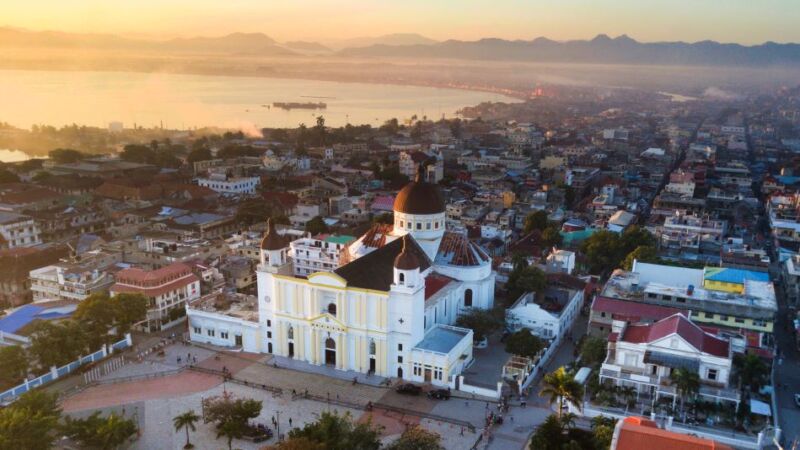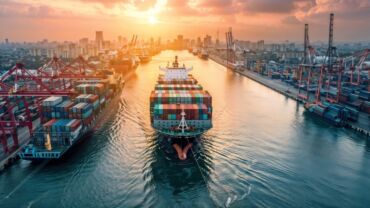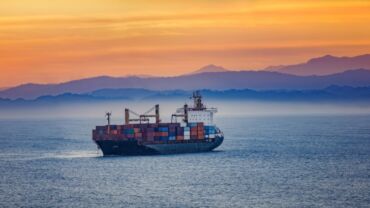Haiti's collapse poses serious threats to global trade, regional security, and humanitarian conditions in the Caribbean
The current situation in Haiti has been overlooked by many, a mistake given that the crisis is likely to continue to deteriorate with vast implications for international trade and global supply chains. Indeed, the crisis holds the potential to spiral the western hemisphere into disorder.
For background, the Caribbean nation of Haiti, home to more than 11 million people, fell into full collapse on March 11, after its Prime Minister Ariel Henry resigned — a resignation forced by his inability to even return to Haiti due to the deteriorating security there. On April 24, a transitionary government was installed, but the council is so far lacking in direct military support and has an incredibly difficult task ahead, with no guarantee of success.
Haiti’s core challenge has been a rise in gang violence in the nation, in which gangs control an estimated 80% of Port-au-Prince, the nation’s capital and have killed hundreds of people in recent months in their fight to control more territory.
Gangs, however, may be a severely misleading term that understates the potential threat. The organizations currently operating and spreading violence in Haiti are much closer to small paramilitary and insurgent forces than they are typical street or criminal gangs. Importantly, they have extremely close ties to Haitian elites and politicians, who have regularly used the gangs’ violence to secure business and political interests. With the dissolution of the military in 1995 due to repeated coups and with a police force too weak to maintain order, these paramilitary organization have become the preferred instrument for maintaining local interests across at all levels of Haitian society. Now, they are out of control, with their leaders making their own grabs for power. Sadly, the nation of Haiti is quickly evolving into a Caribbean version of Somalia, a failed state that will leak its instability into the rest of the region like an oil spill.
21st century Caribbean pirates
Anyone with a romanticized vision of piracy should rethink that right now. As demonstrated in Somalia and increasingly in non-piracy attacks on commercial shipping in the Red Sea, modern piracy is exceptionally dangerous and destructive, both to the lives of the mariners operating in these routes and the global economy itself. For example, global trade dropped 1.3% between November and December 2023 as a result of Houthi attacks on commercial shipping in the Red Sea.
Haiti’s core challenge has been a rise in gang violence in the nation, in which gangs control an estimated 80% of Port-au-Prince, the nation’s capital.
When a state collapses into chaos, piracy in some form is likely due to the blend of the activity’s high potential income and a lack of viable alternatives. Ransom payments for captured vessels and their crews often reach millions of dollars, not to mention the value of plundered cargo. Further, piracy can often be undertaken with relatively few resources. For people in failed states, where formal employment opportunities are rare and governance is poor, the high rewards from piracy can be unavoidably attractive.
Yet, there is a notable difference between Haiti and Somalia that is likely to at least mitigate the economic potential of piracy. Haiti, and by extension the Caribbean, is the backyard of the United States Navy, the largest navy in the world. To put it simply, the US has a vested interest in maintaining stability in the Caribbean region and ensuring safe passage for ships traveling through these waters. This deterrence factor, coupled with the extensive surveillance and maritime patrol capabilities of the US, significantly reduces the window of opportunity for piracy to flourish near Haiti as compared to the more remote and less monitored waters off the coast of Somalia. A full-blown return to the golden age of piracy is thus substantially impossible, although attacks small enough to disrupt trade and push up transportation prices are somewhat more plausible.
A complicating factor however is that the U.S. Navy and Coast Guard are almost certain to have their hands full with another, potentially larger problem.
Another refugee crisis, another dangerous water crossing
With the collapse of public services and the economy, Haitian residents face dire shortages of food, clean water, fuel, and medical care, compelling many to flee the country in search of safety and basic necessities. The exodus is not likely to just be a trickle but rather a swelling tide of individuals and families risking perilous journeys by sea, desperate to escape the burgeoning anarchy. The United Nations has already tracked an upswell of refugees fleeing the island of Hispaniola, which Haiti shares with the Dominican Republic.
Given its proximity to Florida and other parts of the US, a large portion of these refugees are likely to attempt to seek refuge here. Past history, including the exodus from Cuba as well as more recent experiences with the refugee crisis in the Mediterranean, shows just how dangerous this type of crossing is to the people attempting it, as well as the political impact it can inspire in the intended destinations.
The Biden administration is already considering using Guantanamo Bay, located only 200 miles from Haiti, as a processing center for refugees. Yet the US immigration system is already strained and the failure of a major immigration bill to pass early this year suggests any kind of action is unlikely until 2025.
With the collapse of public services and the economy, Haitian residents face dire shortages of food, clean water, fuel, and medical care, compelling many to flee the country in search of safety and basic necessities.
What this means is that the US is likely to experience a major surge of refugees coming via a dangerous water crossing at a time when the US is less able to absorb the flow. This refugee crisis is certainly a human catastrophe on its own, but such a mass immigration movement also tends to increase risk more broadly.
The potential for broader risk
While a collapse in Haiti presents challenges concerning piracy and refugees, the most dangerous risks likely would be the potential secondary effects in terms of regional security. A failed state in Haiti could open doors for a spread of illicit activities, such as drugs and weapons trafficking, human trafficking, and terrorism, all ways to exploit the disorder to undermine regional stability and commerce.
Many nations in the region already face high levels of violence and adding a haven for illicit activities would only worsen matters. A collapse in Haiti could also destabilize other fragile states in the Caribbean and Central America, leading to increased migration and political turmoil, creating a domino effect.
One of the most dangerous possibilities involves the discovery of significant oil reserves off Guyana’s coast. While this discovery could greatly improve Guyana’s economy and enhance the region’s geopolitical significance, instability in nearby Haiti could deter investment and raise security costs for oil exploration and production. A deteriorating security situation in the Caribbean might increase the risk of sabotage or terrorist attacks on oil infrastructure, impacting the global energy market. Given Guyana’s territorial dispute with Venezuela over this same oil-rich region, there is the possibility for the situation to further spiral.
Ignoring the risks stemming from Haiti’s collapse into a failed state would be unwise. Regional disruptions are likely, and there’s a real possibility of a catastrophic chain reaction. While there are a number of steps between the collapse of Ariel Henry’s government and the full potential chaos outlined here, the dance has now begun in earnest. Therefore, the situation should be carefully watched by every major entity that has a vested interest in the Caribbean or adjacent regions.
For more on the pressures facing global trade and supply chains, listen to the latest Thomson Reuters Institute Insights podcast, now on Spotify.







